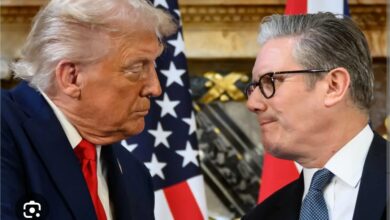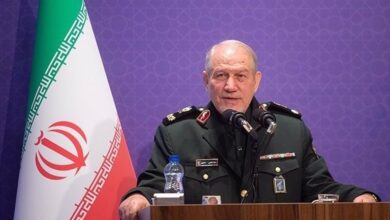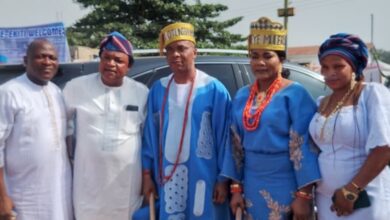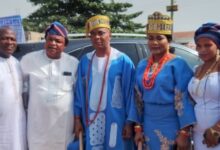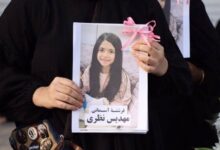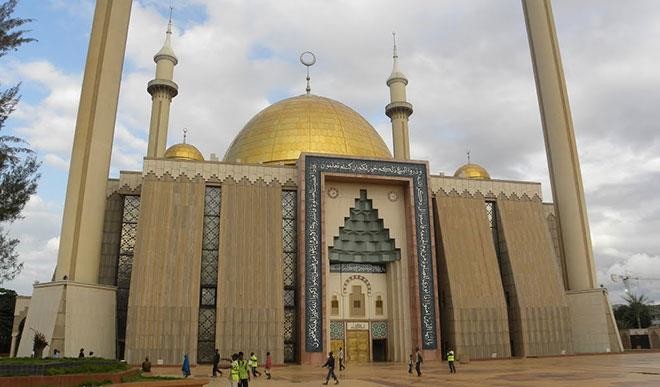
By Muhammad Ajah
The Friday sermon delivered penultimate week by the administrative head of the National Mosque, Professor Shehu Ahmad Said Galadanci, was striking and remains part of the pivots of salvation to the Muslim Ummah of Nigeria. It was quite inspiring, although I am yet to come in terms with the actual designation.
The Nigerian Supreme Council for Islamic Affairs (NSCIA), nearly a year ago, pronounced the Professor as the General Administrator of the National Mosque Abuja due to the restructuring of management of the Mosque. NSCIA further said that he was not appointed the Chief Imam as speculated.
He was, according to NSCIA, to be responsible for the general administration of the Mosque, while the three deputy Imams now elevated to equal ranks as Imams can lead the prayers and deliver the weekly Friday sermon on rotational basis. He could, however, deliver sermons too. The status of the trio has remained the same and their duty, NSCIA postulated, was cloistered like that of Saudi Arabia and practices of other countries.
Since then, the three Imams, Sheikh Professor Ibrahim Ahmad Makari, Sheikh Ahmad Onilewura and Dr. Muhammad Kabir Adam Muhammad have been conducting the Friday sermons, with Prof. Galadanci appearing once a while.
Prof. Galadanci’s sermon on Friday, February 9, 2019, centered on two common viruses that have deeply eaten into the fabric of the Ummah. There are bribery and injustice. Quoting from the Qur’an and the tradition of Prophet Muhammad (SAW), he admonished the Muslims to keep away from them.
Yes, in offices, in schools and institutions, in markets and in our homes, the duo is comfortably living. They are pests that resist to perish. How can they perish when Muslims have become too worldly? Pursuit of societal goodness is confined in worship places only. It is arguable that any mortal is free from these two abstractions.
If bribery is defined as the offering, giving, receiving or soliciting of any item of value to influence the actions of an official or other person in charge of a public or legal duty, then everybody is in trouble. In offices, it is quotidian. It has no religious boundary. People collect bribe but claim they did not ask for it. Files for public interests are cleared with inducement, even for those projects that will benefit the recipient of the bribes. Contracts are inflated and different people share such excesses.
Reflections in markets, producers shortchange consumers with low quality while sellers sell at whatever price without consideration. A lot of concealed bribery occurs in our markets and schools. Handouts, sexual inducement by students and harassment by teachers and lecturers and sundry acts in public institutions and organizations! Consumers shortchange co-consumers. People do not care how to buy or sell. And in our homes, spouse can bribe each other or their children for a favour. Who then can claim freedom of this? Religious teachings have been silenced and the government agencies which are established to enforce proper existence and livelihood are overwhelmed.
On injustice, it is a cankerworm in our midst. Volumes of books have been written on this and everyday events show that people take is as part and parcel of life, not minding the immediate consequences. One can be unjust to oneself, to God his Creator and to other existences. If one can commit injustice against himself or herself, then to commit it against others is as easy as breathing in the air. Talks on these bribery and injustice are inexhaustible but suffice to warn the Muslim Ummah that their consequences are severe in this life and the hereafter. Who can bail the cat?
It is important to use this medium to make two observations that are evident at the National Mosque. One may ask why I am so interested in matters relating to this worship place. The answer is simple. I am a Muslim and that edifice belongs to all the Muslims of Nigeria and by extension, any Muslim residing in Abuja. Again, it is crystal clear that things have changed for either good or otherwise.
The three deputy Imams were appointed in 2012. That was before the death of Sheikh Musa Muhammad in May 2015. The late Sheikh was the pioneer Chief Imam of the Mosque. I can remember that in those days, the roads leading to the Mosque from the Federal Secretariat, Sheraton Hotels and others within the Central Business Area used to experience heavy human traffic before and after the Jum’at prayers. I know how I used to struggle to have a space inside the Mosque if I came after the sermon had started. Coming into the parking spaces then was not possible even before the heralding of the second call to prayers. But now, one can easily drive in and park while the sermon is on.
There was fixed time and no matter what happens, the time was maintained. It was better so because as the National Mosque, it should be the last stop for any Muslim who may have missed prayers elsewhere within the metropolis. Now, there have been inconsistencies in the Jum’at timing, even after several announcements of the changes. Sometimes, the sermon is delay for some “prominent” persons to arrive. Sometimes too, the translation of the sermon into local languages is rushed due to time constraint.
Further, the Jum’at sermon used to be very lively. Worshippers hear the Imam clearly and easily follow all his movements during prayers. The sermon is delivered in high voice to the understanding of worshippers. The recitation of the Holy Qur’an is loud to keep listeners awake and for those who reflect to keep faith and the air within the Mosque is saturated with melodious tunes that keep worshippers high in spirit.
It is unlikely that all is well. It can be unarguable that something has gone wrong. People now prefer to go to other Mosques farther to them than the National Mosque to observe their Jum’at prayers. Some of those who go often come back with heavy hearts, drowsy eyes and cloudy countenance. These are mere observations because I know how enjoyable being in Mosques in Saudi Arabia for Jum’at prayers could be. And if Saudi Arabia and other countries are to be used as models in the appointment of three Imams or more with equal ranking, then let the Jum’at sermon which serves as part of the prayers be perfected in all ramifications as obtainable in those model countries.
Let us fear Allah. Let us fear the Day every soul will answer questions on all actions undertaken in this life. Let us try as much as possible to eschew bribery and injustice both of which have destroyed societies and nations. The two are dangerous to our lives because they engender corruption, oppression, deprivation, usurpation, strangulation, starvation, iniquity and infidelity.
*Muhammad Ajah is an advocate of humanity, peace and good governance in Abuja. E-mail mobahawwah@yahoo.co.uk.


